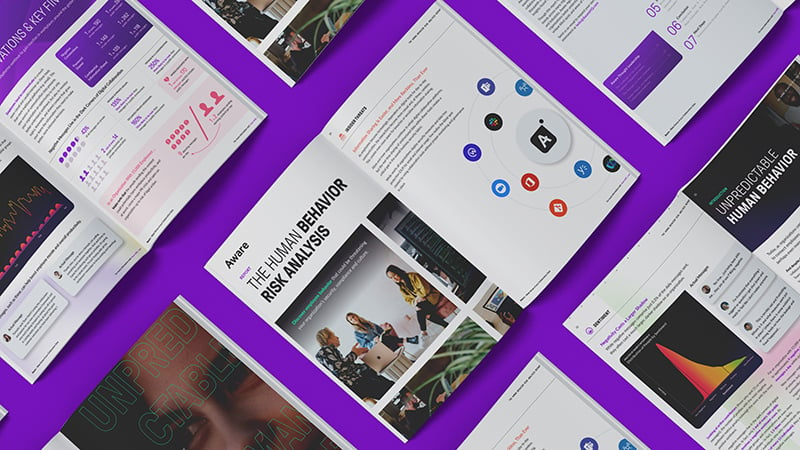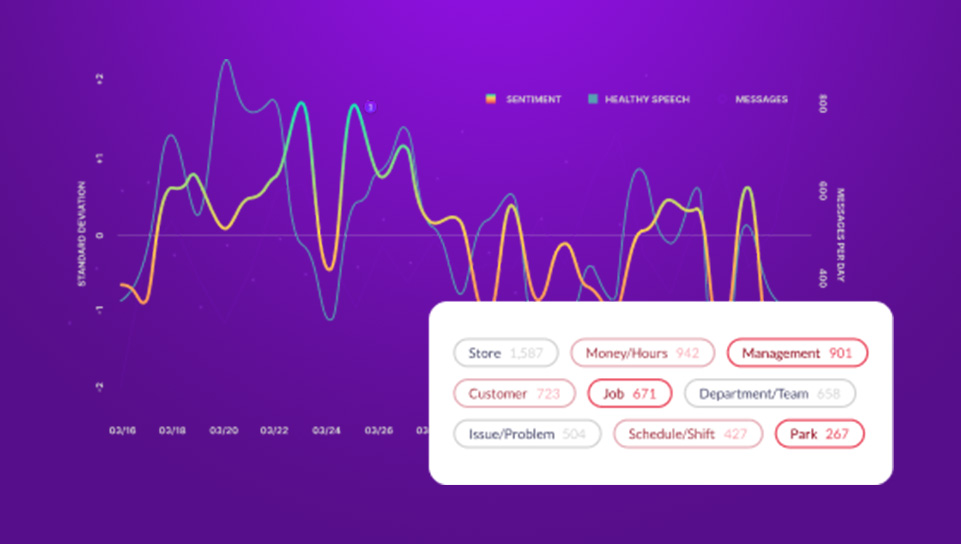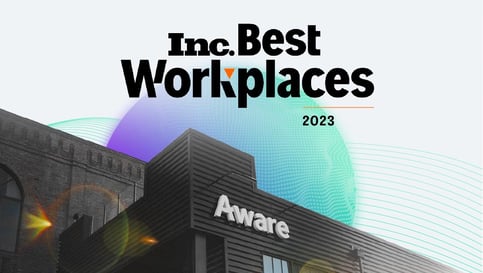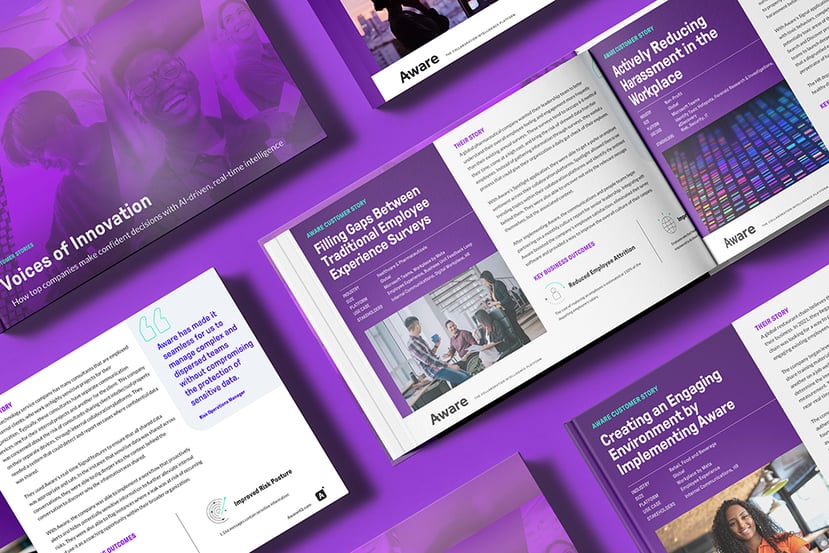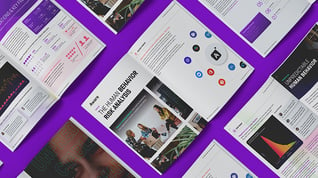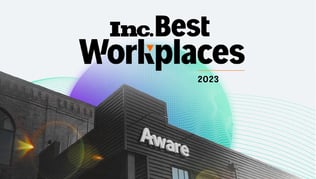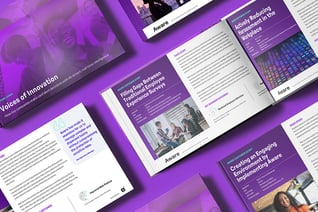Your Legal Operations Checklist for Enterprise Collaboration
by Aware
As the legal landscape evolves rapidly, many legal teams are turning to technology solutions to help them effectively meet their regulatory obligations. The cost of class action suits are increasing and so are the number of new, discoverable datatypes.
Gone are the days of employees working from a single office or conducting business primarily via telephone. In today's world, business conversations often take place on remote conferencing technology, email and, now more than ever, via digital workplace tools.
When identifying datatypes, many organizations overlook the conversation data flowing through collaboration tools like Workplace from Facebook, Yammer, Slack and Microsoft Teams. However, with the growing adoption of these tools, this leaves the organization wide open to risk, as well as potential compliance issues.
What is Legal Tech?
Legal Technology solutions improve lawyers’ ability to efficiently and effectively provide legal services. Examples include eDiscovery, legal operations and social discovery software.
The Comprehensive Legal Technology Checklist for Your Digital Workplace
Employees often turn to digital collaboration tools to connect with colleagues regarding both professional and personal topics, which means these platforms are critical to your discovery process. However, many legal teams don’t understand the complex data—and potential liabilities—that live in these tools. Osterman research reports that only 12% feel they could handle eDiscovery for online applications.
Use this checklist with your team to make sure that your legal operations function has a handle of this new and prevalent source of data:
✓ A Searchable Archive of Collaboration Content
In order to perform any legal action, data must be preserved in a searchable, secure archive.
Collaboration tools are different than email and other conventional forms of professional communication; they often allow the author to revise or delete messages and shared content.
✓ eDiscovery Capabilities for Collaboration
Legal teams need a way to efficiently search and retrieve shared messages, files or other media.
Collaboration tools like Workplace from Facebook, Yammer, Slack and Microsoft Teams leverage a variety of content types, from posts and comments to private messages to files and events.
Look for eDiscovery solutions that search file types, shared media and even use artificial intelligence models to analyze sentiment or conversation topics within the message. This will allow the team to quickly find a needle in the haystack during Early Case Assessment.
✓ Filtered Exports of Collaboration Content
Once data is selected for escalation, legal teams need a way to export conversation content and context into other case management systems.
Exporting all messages from the platform opens the company to unnecessary risk by creating yet another copy of data. It also makes combing through the information incredibly time-consuming for forensics teams.
By filtering conversations based on author, sentiment, topics and even AI/ML metadata, organizations can quickly reduce the amount of data for the export—and a smart archive that also includes conversation context makes evidence even more meaningful.
✓ Dynamic, Bi-Directional Retention on Collaboration Content
Consider different types of communications when determining your retention policy.
Direct messages may carry less business value and more risk, while public posts often have more business valuable and lower risk. As a result, it is best practice to implement unique, granular policies for different conversation types and areas of the platform.
Why Does Bi-directional Retention Matter?
Bi-directional retention ensures that content is deleted from both the platform and the archive. Many vendors claim to offer retention, when in reality, these vendors only purge data from the archive.
In order to truly remove the data risk, organizations need to purge the records from all places.
✓ Data Holds of Enterprise Collaboration Content:
In order to meaningfully hold individual employees' collaboration content, legal teams need to also preserve and discover corresponding conversation context.
Conversations on collaboration tools are inherently chatty and often require surrounding context for meaningful evidence. Be sure to hold not just the necessary individual message, but also the right amount of contextual data.
How Does AI & ML Impact Legal Technology?
When it comes to legal tech, artificial intelligence brings the ability to proactively and efficiently search for concepts or tone of communications by using context or sentiment models. These advanced search technologies create more accurate, efficient discovery flows that give organizations highly comprehensive advanced search and Early Case Assessment capabilities.
Aware is Your Legal Technology Solution for Workplace from Facebook, Yammer, Slack and Microsoft Teams
Learn more about Aware's capabilities that help legal teams around the globe save time, manage legal risk and ensure comprehensive data collection.
